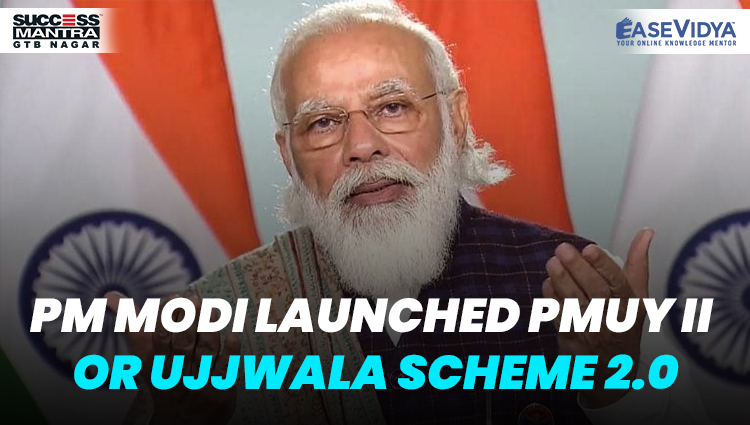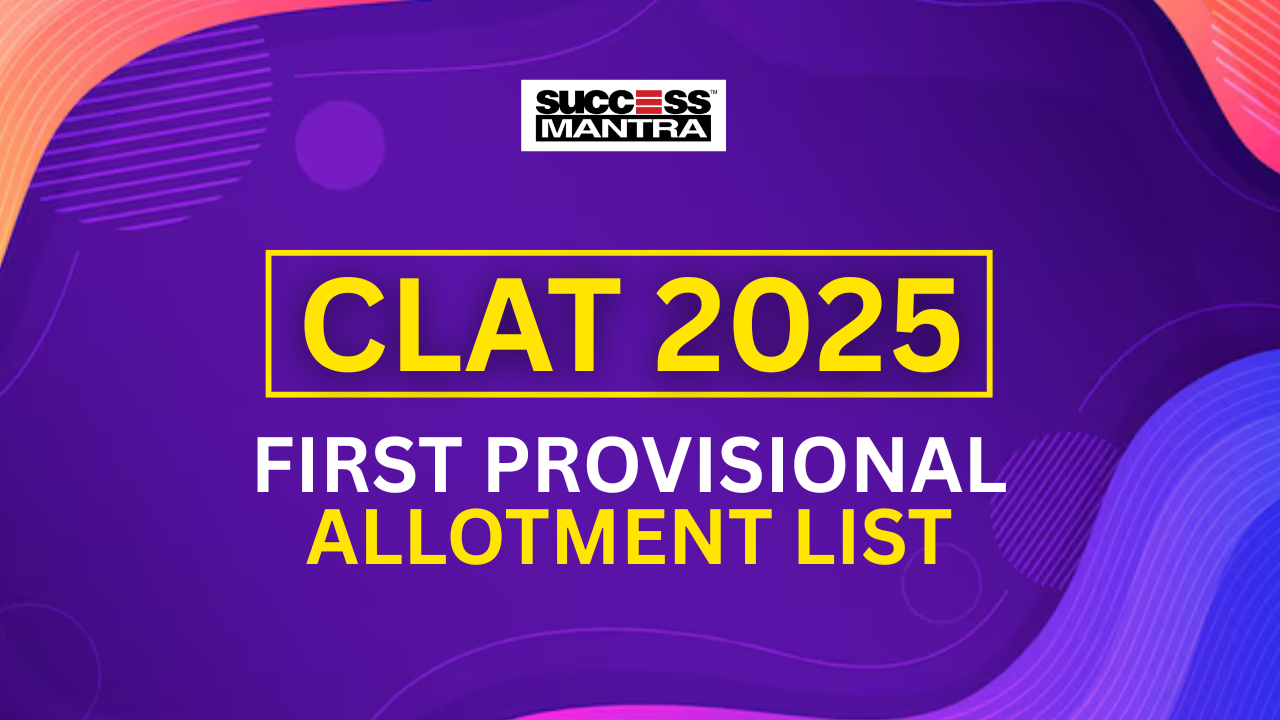
PM MODI LAUNCHED PMUY II OR UJJWALA SCHEME 2.0
PM MODI LAUNCHED PMUY II OR UJJWALA SCHEME 2.0
Recently, the Prime Minister launched the second phase of Pradhan Mantri Ujjwala Yojana (PMUY) or Ujjwala 2.0 Scheme. He mentioned plans to promote “gobar dhan” – tapping cow dung for energy on the occasion of World Bio Fuel Day (10th August). Ujjwala is part of the ambitious agenda for behavioural change that will help India transit to a $5 trillion economy by 2024.
- PMUY-I: Launched in May 2016 to provide LPG (liquefied petroleum gas) connections to poor households.
- PMUY-II: It is aimed to provide maximum benefit to the migrants who live in other states and find it difficult to submit address proof. Now they will only have to give “Self Declaration” to avail the benefit.
Objectives: Empowering women and protecting their health. Reducing the number of deaths in India due to unclean cooking fuel. Preventing young children from a significant number of acute respiratory illnesses caused due to indoor air pollution by burning fossil fuel.
FEATURES & TARGET OF THE SCHEME
Features: The scheme provides a financial support of Rs 1600 for each LPG connection to the BPL households. Along with a deposit-free LPG connection, Ujjwala 2.0 will provide the first refill and a hotplate free of cost to the beneficiaries.
Target: Under Ujjwala 1.0, the target was to provide LPG connections to 50 million women from the below poverty line (BPL) households, by March 2020. However, in August 2018, women from seven other categories were brought under the purview of the scheme: SC/ST, those under the Pradhan Mantri Awas Yojana (PMAY), beneficiaries of the Antyoday Anna Yojana (AAY), Forest Dwellers, most backward classes, tea gardens and Islands. Under Ujjwala 2.0, an additional 10 million LPG connections will be provided to the beneficiaries. Government has also fixed a target of providing piped gas to 21 lakh homes in 50 districts.
Nodal Ministry: Ministry of Petroleum and Natural Gas (MoPNG)
Achievements: In the first phase of the PMUY, 8 crore poor families, including from the Dalit and tribal communities, were given free cooking gas connections. The LPG infrastructure has expanded manifold in the country. In the last six years, more than 11,000 new LPG distribution centres have opened across the country.
ASSOCIATED CHALLENGES
- Low Consumption of Refills: Encouraging the sustained usage of LPG remains a big challenge, and low consumption of refills hindered recovery of outstanding loans disbursed under the scheme. The annual average refill consumption on 31th December 2018 was only 3.21.
- System Anomalies: There are deficiencies such as the issuance of connections to unintended beneficiaries, and problems with the software of the state-run oil marketing companies for identifying intended beneficiaries and inadequacies in the deduplication process.
PRADHAN MANTRI UJJWALA YOJANA (PMUY) 1.0
The Pradhan Mantri Ujjwala Yojana (PMUY) is a government scheme launched in 2016 by Prime Minister Narendra Modi. The scheme originally envisaged the distribution of 50 million LPG connections to women below the poverty line. Later, it aimed to provide LPG connections to eight crore women by March 2020. However, this target was achieved seven months prior, in September 2019.
BENEFITS OF PRADHAN MANTRI UJJWALA YOJANA
The unclean cooking fuel causes deaths which are mostly due to non-communicable diseases including heart disease, stroke, chronic obstructive pulmonary disease, and lung cancer. Providing LPG connections to families below the poverty line ensures universal coverage of cooking gas in the country. The scheme can be a tool for women empowerment in that LPG connections and clean cooking fuel can reduce cooking time and effort, and in most of India, cooking is a responsibility shouldered solely by women. The scheme also employs the rural youth in the supply chain of cooking gas. A relief package worth Rs 1.70 lakh crore was also announced by the government to tackle the financial difficulties arising from the Covid-19 outbreak under the PM Garib Kalyan Scheme.
Some of the major benefits provided by Pradhan Mantri Ujjwala Yojana are:
It provides five crore LPG connections to families below the poverty line. Financial support of Rs 1600 is provided by the scheme for each LPG connection for BPL households. The administrative cost of this support is borne by the Government. This subsidy is meant for the security fee for the cylinder, pressure regulator, booklet, safety hose, and other fitting charges. Under the scheme, oil marketing companies also provide interest-free loans for refilling and purchasing stoves. The Pradhan Mantri Ujjwala Yojana covers all the BPL families that come under all forms of distributorship and distributes various sizes of cylinders (14.2 kg, 5 kg, etc.) as per the field situation. The benefits of this scheme are also available for the people of all Hilly States including the NE States (who are treated as ‘Priority States’). The scheme effectively addresses several difficulties faced by the people in the States of Jammu and Kashmir, Himachal Pradesh, Uttarakhand, Sikkim, Assam, Nagaland, Manipur, Mizoram, Arunachal Pradesh, Meghalaya, and Tripura in accessing LPG for cooking purposes.
OBJECTIVES OF PRADHAN MANTRI UJJWALA YOJANA
The Pradhan Mantri Ujjwala Yojana was launched for providing clean fuel to women below the poverty line. The use of unclean cooking fuel is harmful to human health.
The aims of the Pradhan Mantri Ujjwala Yojana are given below:
To empower women and protect their health. To minimize health issues arising from the use of unclean fossil fuel and other fuel while cooking. To control indoor pollution from the use of fossil fuel which causes respiratory issues. To prevent degradation of the purity of the environment that is compromised by widespread usage of unclean cooking fuel. Any applicant who fulfils the below-mentioned criteria is eligible to apply for the Pradhan Mantri Ujjwala Yojana.
CONCLUSION
The scheme should be extended to poor households in urban and semi-urban slum areas. There is a need for achieving a higher LPG coverage of the population by providing connections to households that do not have LPG. Entering Aadhaar numbers of all adult family members of existing as well as new beneficiaries to make deduplication effective and appropriate measures in distributors’ software to restrict issuance to ineligible beneficiaries.
TEST YOURSELF
Q.1 Recently, the Prime Minister launched the second phase of Pradhan Mantri Ujjwala Yojana (PMUY) or Ujjwala 2.0 Scheme on the occasion of __________?
- World Environment Day
- International Day of Climate change
- World Biofuel Day: ANSWER
- None of the following
Q.2 Which of the following statements is/are correct in the reference to the objectives of the Pradhan Mantri Ujjwala Yojana (PMUY) or Ujjwala 2.0 Scheme?
- Empowering women and protecting their health. Reducing the number of deaths in India due to unclean cooking fuel.
- Preventing young children from a significant number of acute respiratory illnesses caused due to indoor air pollution by burning fossil fuel.
- I & III follows
- II & III follows
- Only II follows
- I, II & III follows: ANSWER
Q.3 Which of the following is the nodal ministry to implement the Pradhan Mantri Ujjwala Yojana or Ujjwala Scheme?
- Ministry of Petroleum and Natural Gas (MoPNG): ANSWER
- Ministry of Environment, Forest and Climate Change
- Ministry of New and Renewable Energy
- None of the above
Q.4 Consider the given options & state which of the following has launched the Pradhan Mantri Ujjwala Yojana or Ujjwala scheme?
- Narendra Modi: ANSWER
- Raj Kumar Singh
- Thawarchand Gehlot
- None of the above
Q.5 Which of the following is correct regarding the theme of the World Biofuel Day 2021?
- Targeting the net Zero emissions
- Restoration of Biofuel
- The promotion of biofuels for a better environment: ANSWER
- None of the following













0 Comment